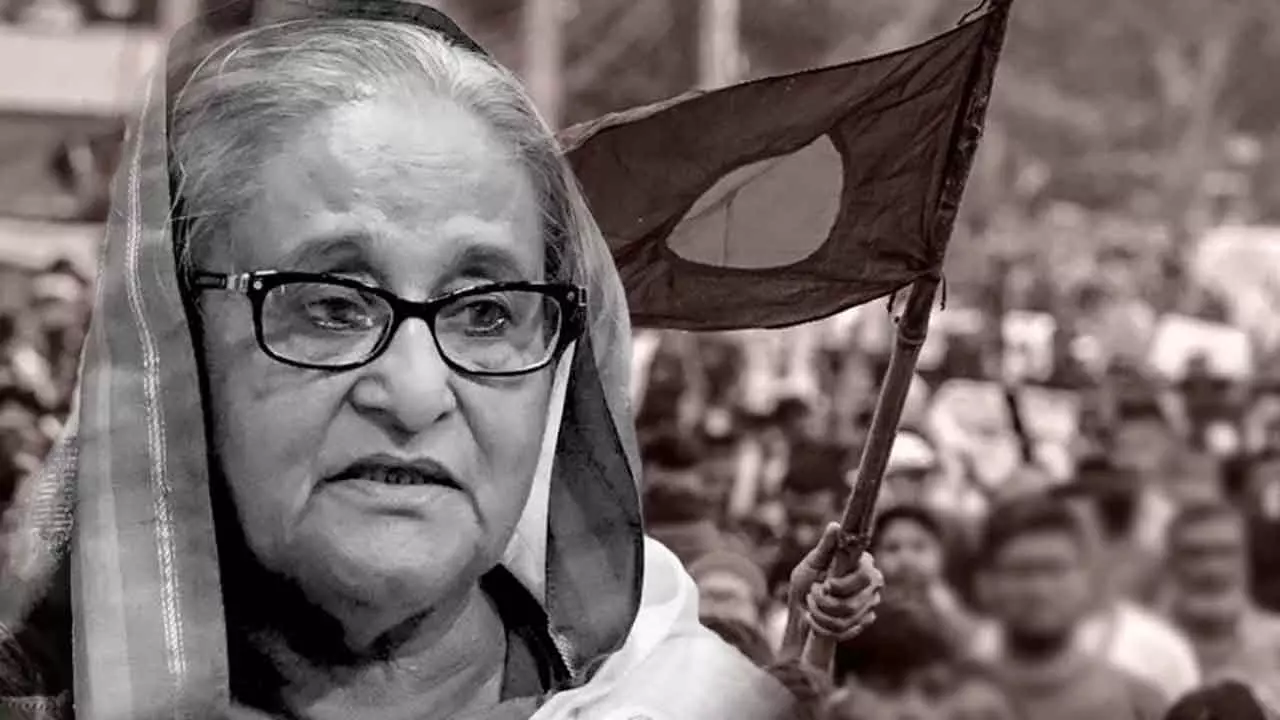Have geopolitics put paid to Hasina regime in Bangladesh?

Have geopolitics played a role in bringing down Sheikh Hasina? Developments in the past few months do not rule out this possibility. However, to what extent it is not clear, though. A statement, purportedly made by Sheikh Hasina before her escape but undelivered to the media, shockingly alleged the hand of a foreign nation behind the events that led to her ignominious exit on August 5.
The letter claims she could have remained in power “if I had surrendered the sovereignty of Saint Martin Island and allowed America to hold sway over the Bay of Bengal.” “I beseech to the people of my land, ‘Please do not be manipulated by radicals’,” the letter adds. Soon, her son, Sajeed Wazeb, swiftly denied his mother made any such statement, accusing the United States of plotting a regime change in Bangladesh. In a post on X, he wrote: “The recent resignation statement attributed to my mother published in a newspaper is completely false and fabricated. I have just confirmed with her that she did not make any statement either before or since leaving Dhaka.”
This rebuttal by Hasina’s son raises a question: who managed such a statement and what is their motive. Hasina who is hard put to get asylum in the west would not be so naive to incriminate the US for her ouster. Who is seeking to further inflame the perturbed nation by directing its anger at the US? Or, could it be true the US so badly wanted her ouster? It may be recalled Hasina had alleged in May a conspiracy to create a Christian state similar to East Timor by partitioning parts of Bangladesh and Myanmar. She claimed she was offered an easy re-election if she allowed a foreign nation to establish an airbase in Bangladesh. She did not name the country, though. Her past claim could have been made use of now to preclude the US from seeking any room for maneuver in domestic politics of Bangla. Also, the tactical release of Hasina’s arch-rival and BNP president Begum Khaleda Zia must be counted in here, as reports speak of her hinting at review of strong ties with India. In the wake of the letter, if she does get to form the government eventually, she certainly would not be able to allow the US to touch base on the St Martin Island.
Who will all these events benefit, if not China and its protégé Pakistan? For them, it is like killing two birds with one stone, in alienating both the US and India from Bangladesh. St Martin is a small island in the southernmost part of Bangladesh in the Bay of Bengal i.e., the Indian Ocean, where both
China and the US are bitterly engaged in one-upmanship. A fierce primacy contest in South China Sea and East China Sea, in the Pacific Ocean, has now spread to the Indian Ocean. The two most powerful nations in the world have been wooing Bangladesh hard in recent months. One view is that preference to stay neutral between China and the US, while keeping close to India, may have cost Hasina her job. Thus, it is discernible that larger interests, too, besides job quota issues and youth unrest, could have helped sustain the unprecedented violence. As for India, it lost any edge with the outbreak of popular uprising. Having lent a strong
support to Bangla economy growth, it should now stay clear of controversies and win over the new government. No choice there. Remember the famed quote of Atal Bihari Vajpayee: “We can change our friends but not our neighbours.”

